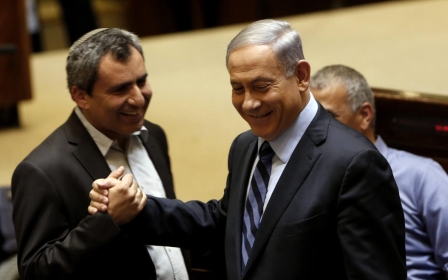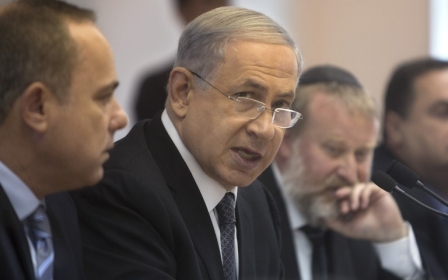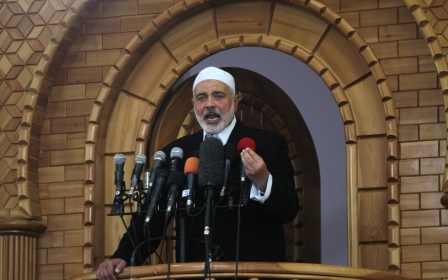ANALYSIS: What to expect in Netanyahu's fourth government

The beginning of Israeli Prime Minister Benjamin Netanyahu’s fourth government is not an auspicious one: a last-minute breakaway by longtime ally Avigdor Lieberman left Netanyahu with a razor-thin majority of just one Member of the Knesset (MK). Likewise, grueling, protracted cabinet negotiations saw the Likud leader give away some of the lushest portfolios to junior coalition members at the expense of his own party.
Nevertheless, there is every reason to believe that this government will prove as durable as any in Israel’s recent history - which is to say, serve at least two and one-half years out of the four allotted to it under the election law.
Barring some unexpected regional cataclysm, it will be a government preoccupied mostly with domestic policies, concentrating on targeting dissent and doing its best to continue ignoring the already comatose peace process. Nevertheless, some of the new cabinet figures also have the potential to surprise observers on this front - by at least pushing the boundaries of legitimate conversation, if not through tangible changes on the ground.
Netanyahu’s new coalition is likely to prove a durable one. It is inherently more cohesive than any of the previous two. None of the parties that compose it are to the left of the Likud on any key issue and even the widely advertised rift between the ultra-Orthodox parties and Naftali Bennett’s settlers appears to have been bridged. Secondly, as Noam Shezaf points out in +972 Magazine, none of the parties that compose the coalition have any alternatives to Netanyahu’s leadership: they are too small to survive on their own (of the 61 seats that compose the coalition, 30 belong to the Likud), and they know that the next largest parties will not be as amenable to their demands.
Like Thatcher, Netanyahu is more vulnerable to a revolt from within his own party than to any outside assault. But he seemed to have learned the lesson well: every fellow Likud heavyweight who made the mistake of combining legislative efficacy with personal popularity has been shunted to the side. The only remaining potential challenger is Gilad Erdan, yet another talented ex-minister who Netanyahu managed to alienate by not offering an adequate portfolio. At the moment, Erdan is stewing without a ministerial post, trying to decide whether to stoop to a minor position in the cabinet or wait for Netanyahu to fall out with one of his luckier peers.
The only Likud figure whose stock is palpably on the rise is the newly made minister for culture and sports, Miri Regev. Regev is virulently hated by much of the media and artistic elite in Israel, ostensibly for her ultra-conservative attacks on freedom of expression and vitriolic incitement against minorities within Israel, especially asylum-seekers and refugees. These are good reasons to oppose a politician, but many of her liberal critics could not help themselves from veering into racially tinted remarks about her Mizrahi origin, lowly cultural tastes and the damage she might do to “high” Israeli culture, from classical music to westernised theatre and rock.
Apart from confirming the worst fears about the intra-Jewish racism underpinning much of the ostensibly liberal Israeli left, the mashing together of dissent from what she does and disdain for who she is will resonate well with Israelis discriminated and excluded for decades by the old Tel Aviv elite. Regev, a gifted populist who built her career in recent years on pushing the discriminated to scapegoat the oppressed, will milk this to the utmost, but it will take some years before this angry, almost deliberately clownish figure is seen as a candidate for the top job.
Relatively secure in his seat domestically, Netanyahu is not expected to make many sudden moves on the international front. At the moment, there is no incentive - sticks or carrots - for Israel to change any of its policies toward the Palestinians, whether in Gaza or the West Bank. Netanyahu already declared the two-state solution dead in the course of the election, and the fate of the foreign affairs portfolio underlines that: the prime minister is keeping the portfolio to himself, probably as bait for some opposition leader or another, and the acting foreign minister is Tzipi Hotovely, one of the earliest and loudest one-staters, who has argued for annexing the West Bank and granting citizenship to its Palestinian residents.
It is highly unlikely any such move will actually take place under this government - the politically and legally murky climate in the occupied territories is the most conducive one to Israel’s expansionism; granting the Palestinians rights will only make things more complicated. But Hotovely will have every opportunity to use her new international prominence to try and make one state a legitimate question to debate, in Israel and internationally.
The rest of the international arenas are likely to remain as they are today. Israel will continue building its alliance with Egypt, and will try to eke out concessions from the US in return for a grudging concession to a deal with Iran. Except for a morbid rewind and repeat war on Gaza, the only possible conflagration point is on Israel’s northern border, the subject of many an alarmist story in Israeli media (and recently the New York Times). The stories present a new conflict between Israel and Hezbollah inevitable for some unnamed reason, but so far, the media is the only arena in which anything resembling a preparation for war appears to be going on.
Bereft of a major international conflict or a diplomatic horizon, the government is likely to concentrate on the domestic front including the reform of the Supreme Court, now spearheaded by a fearsomely effective Ayelet Shaked, and a renewed clampdown on civil society. A third and relatively new front is a curtailment of free media, with Netanyahu reserving the media minister portfolio for himself and seeking the advance support of his coalition partners for any media legislation that he might initiate. These three look likely to be the major arenas for Netanyahu’s fourth government - and it remains to be seen how much, if any interest they attract from international observers, against the backdrop of a continually deteriorating Middle East.
Middle East Eye propose une couverture et une analyse indépendantes et incomparables du Moyen-Orient, de l’Afrique du Nord et d’autres régions du monde. Pour en savoir plus sur la reprise de ce contenu et les frais qui s’appliquent, veuillez remplir ce formulaire [en anglais]. Pour en savoir plus sur MEE, cliquez ici [en anglais].




